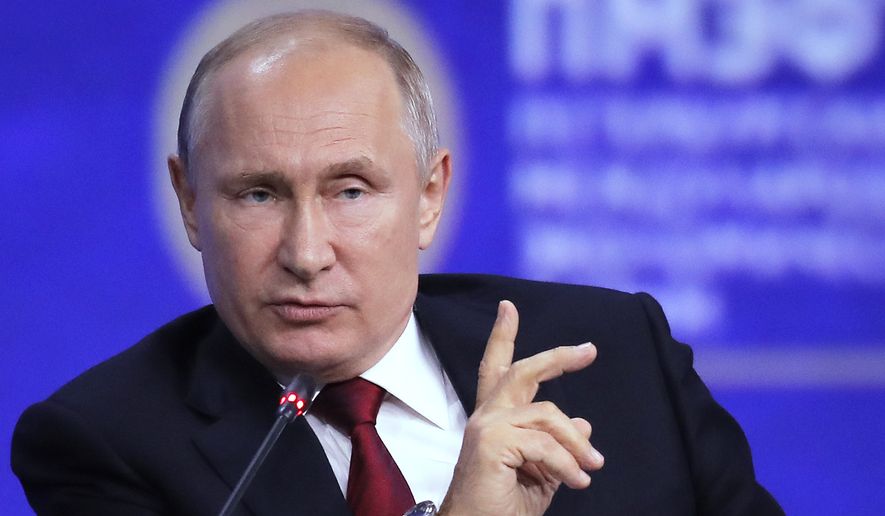The Defense Intelligence agency said this week that Russia has violated several key international mandates with the U.S. and allies that ban live nuclear weapons tests.
“The U.S. government, including the intelligence community, has assessed that Russia has conducted nuclear weapons tests that have created nuclear yield,” according to a Defense Intelligence Agency statement issued Thursday.
“These are actions that the U.S. government characterizes as inconsistent with the commitments undertaken by the United States, the United Kingdom, and France,” DIA officials said in the statement.
Agency officials issued the statement in response to questions about remarks by DIA Director Lt. Gen. Robert Ashley during a May 29 speech, where he said U.S. intelligence assesses that Russia has “probably” violated a key 1996 treaty banning nuclear detonation tests.
“The United States believes that Russia probably is not adhering to the nuclear testing moratorium in a manner consistent with the zero yield standard,” he said in May.
The Russian Foreign Ministry says it has been compliant with the 1996 nuclear test ban treat since Moscow ratified the pact in 2000, noting Gen. Ashley’s comments were “absolutely unfounded” and an attempt at “crude provocation” of the Kremlin.
The U.S. row with Russia over nuclear weapons testing comes as the Trump White House is considering an extension of a Cold War-era pact with Moscow, geared toward ramping down the American and Russian nuclear arsenals.
Initiated in April 2010, the New Strategic Arms Reduction Treaty, also known as New START, is set to expire in 2021.
Russian President Vladimir Putin’s government has indicated it is willing to extend the deal past the 2021 deadline.
“Russia stands ready to extend this treaty, to prolong it, but we have to agree on the specifics at first,” Russian Defense Ministry Spokesman Igor Konashenkov said in July, when talks over a treaty extension began in earnest between the U.S. and Moscow.
The White House has already pulled the United States from the Intermediate-Range Nuclear Forces (INF) treaty with Russia over Moscow’s continued non-compliance with the terms of the Cold War-era pact.
Russia’s threats to launch less powerful nuclear weapons in order to draw foreign policy concessions from the U.S. and the international community could be given political cover should the New START treaty be extended, analysts say.
• Carlo Muñoz can be reached at cmunoz@washingtontimes.com.




Please read our comment policy before commenting.